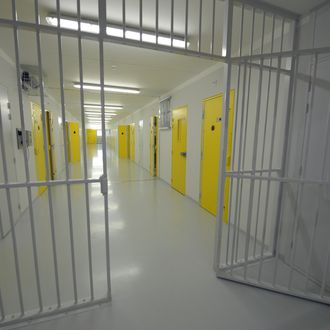
In a move to address the absurdly overcrowded American prison system, where about half of those locked up are in for drug crimes, the U.S. Sentencing Commission voted unanimously today to apply its newly reduced sentencing recommendations retroactively. As a result, according to the Associated Press, as many as 46,000 inmates could be eligible for early release — with cuts averaging 25 months — beginning in November 2015.
“This is a milestone in the effort to make more efficient use of our law enforcement resources and to ease the burden on our overcrowded prison system,” said Attorney General Eric Holder said in a statement.
“It makes little sense, of course, to reform harsh sentencing laws proactively but not retroactively,” added Drug Policy Alliance executive director Ethan Nadelmann in a statement of his own. “But that’s what politicians do when they’re scared of allowing people out of prison early. The Sentencing Commission really had no choice but to rectify the moral absurdity of keeping people locked up based on sentences that are no longer the law. What they did today was right and just.” (Congress has until November of this year to oppose the plan but is not expected to act.)
Like Brooklyn, the city of D.C. is also doing its part to cut down on draconian drug arrests. As of Thursday, possession of up to an ounce of marijuana — reminder: that’s a lot of weed — is punishable only by a $25 ticket, as long as you’re not smoking in public or caught on federal land. (Seriously, local teens, getting high at the Lincoln Memorial is still not cool.) Littering, the Times notes, carries a fine three times as high.





























